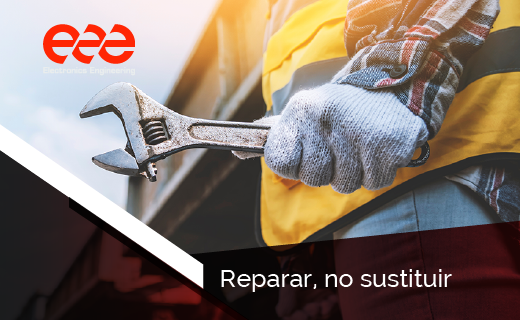Immersed in the “throw-away” culture, in the electronic world there is also a strong belief that a repaired device will not perform as well as a new one. Since the mid-2000s, however, the railway sector joined the “Repair, don’t waste” movement. This entrepreneurial attitude not only has advantages in terms of the environment, but also in terms of the company’s own performance.
The environment, the main victim of the throw-away culture
It may come as a shock to learn that repairing electronic circuits, by the right standards, results in 85% fewer emissions compared to sourcing and buying new ones. Furthermore, the cost of repairing a part is, on average, around 10% of the cost of a new circuit board.
Every year, more than 50 million tonnes of electronic waste is produced worldwide, which is often easily repairable and of high economic value. Not to mention the environmental impact of this quantity of electronic components due to their toxicity.
Replacing parts unnecessarily, a loss for everyone
Using new parts instead of repairing salvageable ones is not only costly, but also a poor use of resources. Thus, in order to keep these new parts in stock, they must be ordered, resulting in extra machine downtime. However, equipment that is already on site and monitored by the maintenance department can be quickly repaired at its place of operation, thus providing more uptime and availability, and thus being more cost-effective for the company.
Current events and the unprecedented situation caused by the pandemic have reminded us that electronic components are basic to our daily lives and that the system cannot withstand uncontrolled distribution of these components. Thus, chip shortages have led to a limited supply of vehicles, household appliances and even military equipment. It is time for the “Repair, don’t waste” movement to go mainstream. At Triple E – EEESA we have already joined the #RepairDontWaste culture, convinced that industrial electronics that remain in operation for longer benefit us all, be it directly or indirectly.










